Rs Aggarwal Solutions: Exercise 1E - Rational Numbers | Mathematics (Maths) Class 8 PDF Download
Q.1. Simplify:
(i) 
(ii)
(iii)
(iv)
(v)
(vi)
Ans.
(i)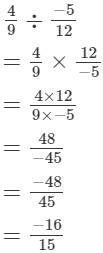
(ii)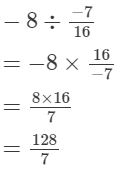
(iii)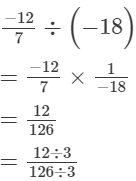

(iv)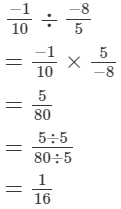
(v)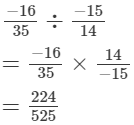
(vi)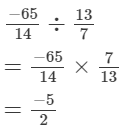
Q.2. Verify whether the given statement is true or false:
(i) 
(ii)
(iii)
(iv) 
Ans.
(i)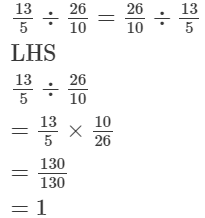
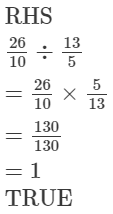
(ii)
(iii)

(iv)
Q.3. Verify whether the given statement is true or false:
(i)
(ii)
(iii)
Ans.
(i)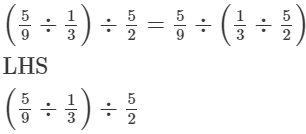

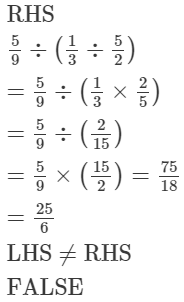
(ii)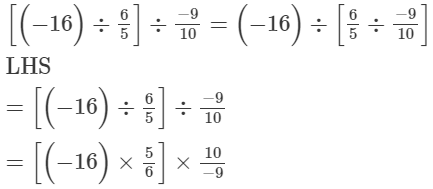
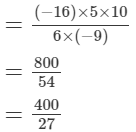
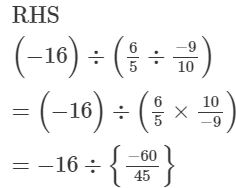
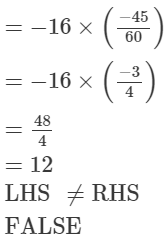
(iii)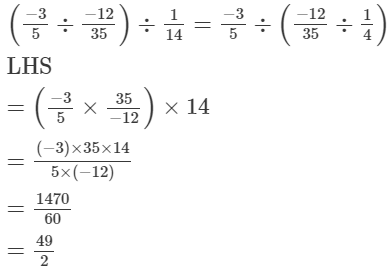
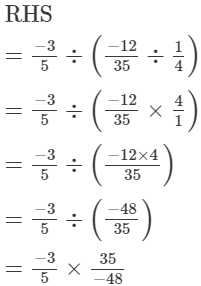
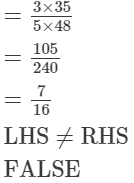
Q.4. The product of two rational numbers is −9. If one of the numbers is −12, find the other.
Ans.
Let the number be x.
Now,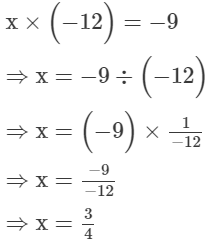
Q.5. The product of two rational numbers is  If one of the numbers is
If one of the numbers is
 find the other.
find the other.
Ans.
Let the number be x.
Now,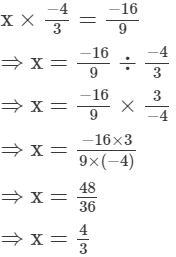
Q.6. By what rational number should we multiply 
Ans.
Let the number be x.
Now,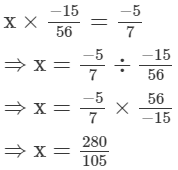
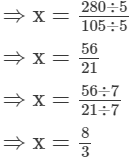
Q.7. By what rational number should  be multiplied to obtain
be multiplied to obtain

Ans.
Let the number be x.
Now,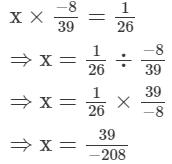
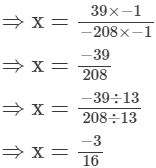
Q.8. By what number should  be divided to get
be divided to get

Ans.
Let the number be x.
Now,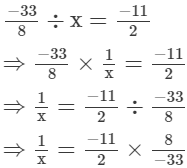

Q.9. Divide the sum of  by the product of
by the product of

Ans.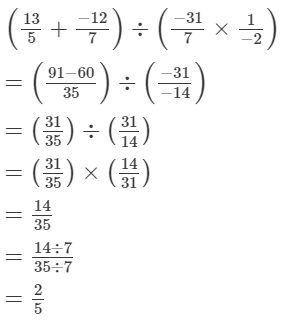
Q.10. Divide the sum of  by their difference.
by their difference.
Ans.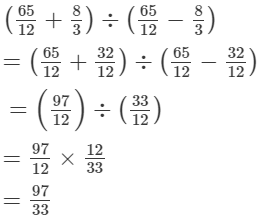
Q.11. Fill in the blanks:
(i)
(ii)
(iii)
(iv)
Ans.
(i)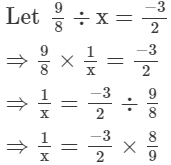
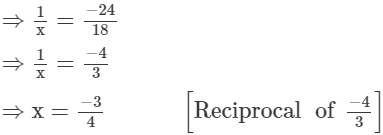
(ii)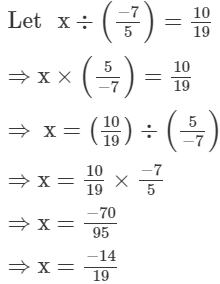
(iii)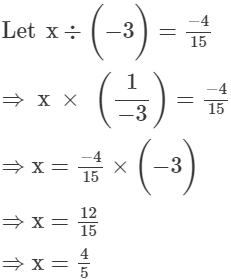
(iv)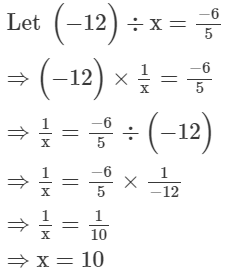
Q.12.
(i) Are rational numbers always closed under division?
(ii) Are rational numbers always commutative under division?
(iii) Are rational numbers always associative under division?
(iv) Can we divide 1 by 0?
Ans.
(i) No, rational numbers are not closed under division in general. it is not a rational number.
it is not a rational number.
(ii) No
Therefore, division is not commutative.
(iii) No, rational numbers are not associative under division.
(iv) No, we cannot divide 1 by 0. The answer will be∞, which is not defined.
|
81 videos|423 docs|31 tests
|
FAQs on Rs Aggarwal Solutions: Exercise 1E - Rational Numbers - Mathematics (Maths) Class 8
| 1. What are rational numbers and how are they different from irrational numbers? |  |
| 2. How can I determine if a number is rational or irrational? |  |
| 3. How do I perform operations like addition, subtraction, multiplication, and division with rational numbers? |  |
| 4. Can a rational number be negative? |  |
| 5. What are some real-life examples of rational numbers? |  |





















